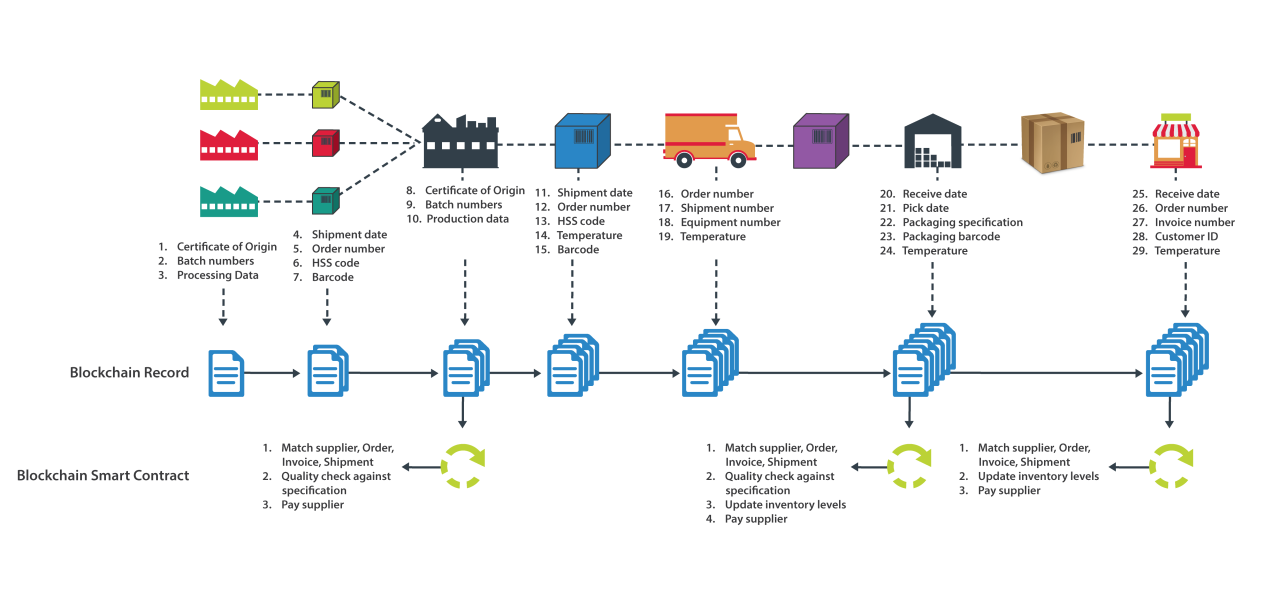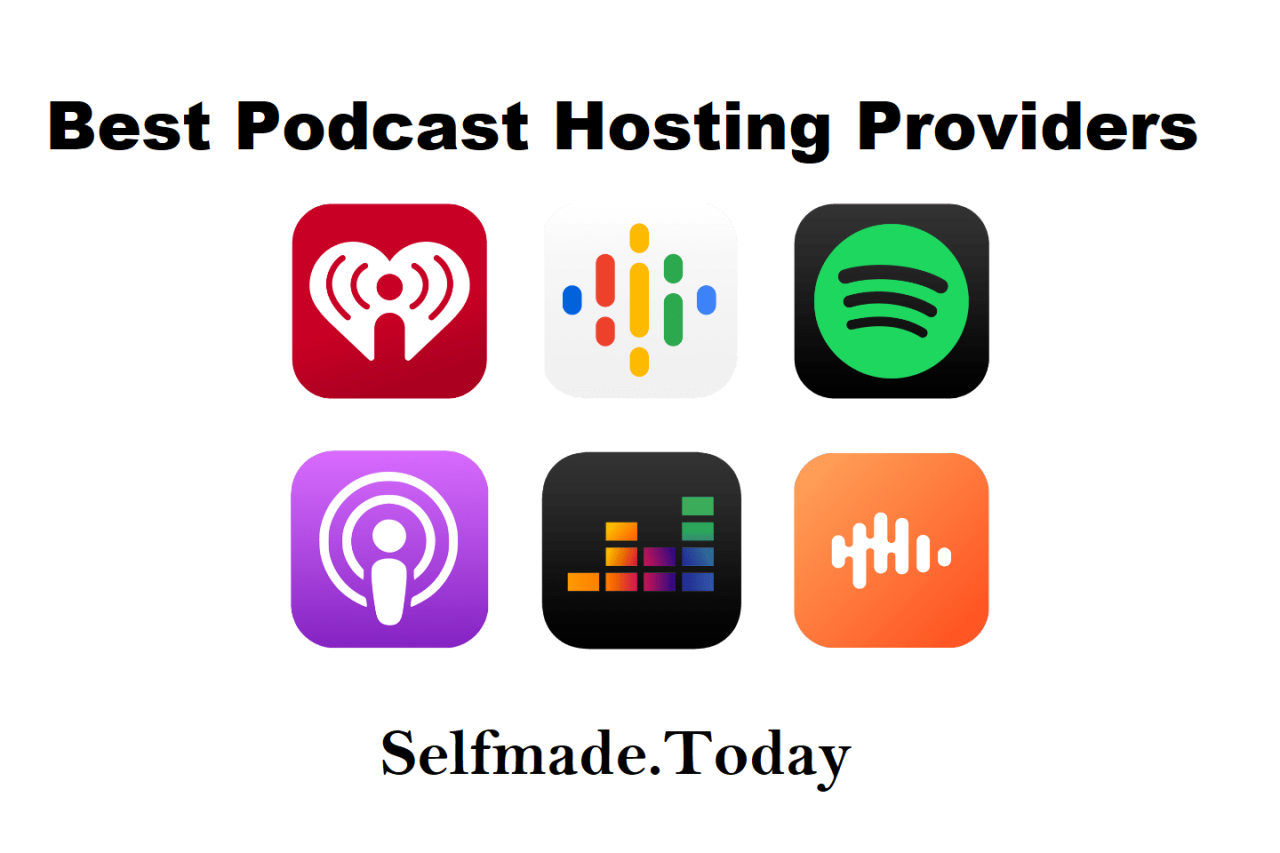Blockchain For Supply Chain Management
Blockchain for supply chain management introduces a revolutionary approach to enhancing transparency, traceability, and efficiency in global supply chains. As businesses strive for greater accountability and streamlined operations, blockchain technology emerges as a game-changer in reshaping the way goods are tracked and managed.
Exploring the applications, advantages, challenges, and limitations of blockchain in supply chain management unveils a world of possibilities and complexities that organizations must navigate to stay competitive in the modern marketplace.
Overview of Blockchain for Supply Chain Management

Blockchain technology has revolutionized supply chain management by providing a secure and transparent way to track the movement of goods from the point of origin to the final destination. By utilizing decentralized and immutable ledgers, blockchain enhances transparency and traceability in supply chains, ensuring that every transaction and movement of products is recorded and accessible to all parties involved. The benefits of using blockchain for supply chain management include increased efficiency, reduced fraud, improved trust among stakeholders, and the ability to quickly identify and address any issues or bottlenecks in the supply chain.
Enhanced Transparency and Traceability
Blockchain technology allows for real-time tracking of goods throughout the supply chain, providing stakeholders with complete visibility into the movement of products at every stage. This enhanced transparency helps to prevent counterfeit goods, reduce theft, and ensure that products are sourced ethically and sustainably. By leveraging blockchain, companies can build trust with consumers by providing them with accurate and verifiable information about the products they purchase.
Increased Efficiency and Reduced Costs
Implementing blockchain in supply chain management streamlines processes, eliminates paperwork, and reduces the need for intermediaries, leading to increased operational efficiency and cost savings. Smart contracts embedded in blockchain technology automate tasks and payments, reducing the time and resources required to manage complex supply chains. This efficiency ultimately benefits all parties involved, from manufacturers to retailers and consumers.
Applications of Blockchain in Supply Chain
Blockchain technology has revolutionized the way supply chain management operates, offering transparency, security, and efficiency. Let’s explore some specific applications of blockchain in the supply chain industry.
Product Traceability
Blockchain is being used to track products from the manufacturer to the consumer, ensuring transparency and authenticity throughout the supply chain. Each product is assigned a unique digital identity that is recorded on the blockchain, allowing stakeholders to trace its journey at every stage.
- Blockchain enables real-time visibility into the movement of goods, reducing the risk of counterfeit products entering the market.
- Smart contracts embedded in the blockchain can automatically trigger actions, such as payment release, upon the fulfillment of predefined conditions.
- Consumers can access detailed information about the product’s origins, manufacturing process, and transportation, fostering trust and accountability.
Smart Contracts Automation
Smart contracts play a crucial role in automating processes within the supply chain, eliminating the need for intermediaries and streamlining transactions. These self-executing contracts are triggered by predefined conditions encoded on the blockchain, ensuring seamless operations.
- Smart contracts enable automatic verification and execution of agreements, reducing delays and human errors in supply chain transactions.
- They facilitate real-time tracking of inventory levels, triggering reorder processes when stock reaches a certain threshold.
- Smart contracts can enforce compliance with regulations and standards, ensuring that all parties adhere to predefined rules and protocols.
Advantages of Implementing Blockchain in Supply Chain

Blockchain technology offers numerous advantages when implemented in the supply chain industry, revolutionizing the way companies track and manage their products. By leveraging blockchain, organizations can enhance transparency, security, and efficiency throughout the supply chain process.
Enhanced Transparency and Traceability
- Blockchain provides a decentralized and immutable ledger that allows all participants in the supply chain to view and verify transactions in real-time.
- Each transaction recorded on the blockchain is time-stamped and linked to previous transactions, creating a transparent audit trail for every product.
- Enhanced traceability enables quick identification of issues or discrepancies, reducing the time and resources required for recalls or investigations.
Improved Security and Data Integrity
- Blockchain uses advanced cryptographic techniques to secure data, making it nearly impossible for unauthorized parties to alter or manipulate information.
- Smart contracts embedded in blockchain can automate trust-based transactions, ensuring that agreements are executed as programmed without the need for intermediaries.
- Secure data sharing among supply chain partners minimizes the risk of fraud, counterfeiting, and unauthorized access to sensitive information.
Cost Savings and Reduced Errors
- By streamlining processes and eliminating manual paperwork, blockchain reduces administrative costs and human errors in supply chain operations.
- Automation of tasks such as verification, validation, and payments accelerates the flow of goods, leading to faster delivery times and improved customer satisfaction.
- Real-time monitoring and tracking of products through blockchain technology help optimize inventory management, prevent stockouts, and reduce excess inventory holding costs.
Challenges and Limitations of Blockchain in Supply Chain

Implementing blockchain technology in supply chain management comes with its own set of challenges and limitations that organizations need to address. These obstacles can hinder the seamless integration and adoption of blockchain solutions, impacting the efficiency and effectiveness of supply chain operations.
Complexity of Supply Chain Networks
One of the major challenges faced when implementing blockchain in supply chains is the complexity of the networks involved. Supply chains often consist of multiple stakeholders, including suppliers, manufacturers, distributors, retailers, and customers. Coordinating and aligning all these parties to participate in a blockchain network can be a daunting task.
Moreover, integrating legacy systems with blockchain technology can pose compatibility issues, leading to data silos and interoperability challenges within the supply chain ecosystem.
Lack of Standardization and Regulation, Blockchain for supply chain management
Another limitation of blockchain technology in supply chain management is the lack of standardized protocols and regulatory frameworks. The absence of uniform standards for data formats, smart contracts, and governance models can hinder the scalability and interoperability of blockchain solutions across different supply chain networks.
Additionally, regulatory uncertainties and compliance requirements vary across different regions and industries, making it challenging to ensure the legal validity and acceptance of blockchain transactions.
Scalability and Performance Issues
Scalability and performance remain critical concerns for implementing blockchain in supply chain management. As the volume of transactions and data on the blockchain network grows, scalability issues can arise, leading to slower transaction speeds and higher costs.
Furthermore, the energy-intensive consensus mechanisms used in blockchain, such as proof-of-work, can impact the environmental sustainability of supply chain operations, raising concerns about the long-term viability of blockchain technology.
Potential Solutions and Advancements
To overcome these challenges and limitations, organizations can explore solutions such as developing industry-specific standards, enhancing data interoperability through APIs, and leveraging advanced consensus algorithms like proof-of-stake. Collaborative efforts among stakeholders, regulatory bodies, and technology providers are essential to drive the adoption of blockchain technology in supply chain management and address these challenges effectively.
Expert Answers
How does blockchain technology enhance transparency in supply chains?
Blockchain ensures transparency by creating an immutable ledger of transactions that all parties can access and verify.
What are the benefits of using blockchain for supply chain management?
Some benefits include enhanced traceability, reduced fraud, increased efficiency, and improved trust among stakeholders.
What challenges are faced when implementing blockchain in complex supply chain networks?
Challenges include scalability issues, integration with existing systems, regulatory concerns, and ensuring data privacy.
How does blockchain technology track products from manufacturer to consumer?
Through unique digital signatures and timestamps, blockchain can track products at every stage of the supply chain, providing a transparent and secure record of their journey.






